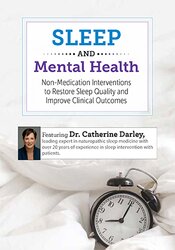Inscrivez-vous dès aujourd'hui à un cours en ligne pour un apprentissage flexible, à votre rythme, sans avoir à respecter un horaire fixe.


-
 Cours en ligneQue vous soyez novice en matière de thérapie Internal Family Systems (IFS) ou que vous pratiquiez ce modèle depuis des années, inscrivez-vous et découvrez comment affiner et personnaliser le modèle afin qu'il s'adapte aux besoins uniques de vos clients.Valeur : 1 140,66 € *€275,99Que vous soyez novice en matière de thérapie Internal Family Systems (IFS) ou que vous pratiquiez ce modèle depuis des années, inscrivez-vous et découvrez comment affiner et personnaliser le modèle afin qu'il s'adapte aux besoins uniques de vos clients.21 oct. 2020Que vous soyez novice en matière de thérapie Internal Family Systems (IFS) ou que vous pratiquiez ce modèle depuis des années, inscrivez-vous et découvrez comment affiner et personnaliser le modèle afin qu'il s'adapte aux besoins uniques de vos clients.Valeur : 1 140,66 € *€275,99
Cours en ligneQue vous soyez novice en matière de thérapie Internal Family Systems (IFS) ou que vous pratiquiez ce modèle depuis des années, inscrivez-vous et découvrez comment affiner et personnaliser le modèle afin qu'il s'adapte aux besoins uniques de vos clients.Valeur : 1 140,66 € *€275,99Que vous soyez novice en matière de thérapie Internal Family Systems (IFS) ou que vous pratiquiez ce modèle depuis des années, inscrivez-vous et découvrez comment affiner et personnaliser le modèle afin qu'il s'adapte aux besoins uniques de vos clients.21 oct. 2020Que vous soyez novice en matière de thérapie Internal Family Systems (IFS) ou que vous pratiquiez ce modèle depuis des années, inscrivez-vous et découvrez comment affiner et personnaliser le modèle afin qu'il s'adapte aux besoins uniques de vos clients.Valeur : 1 140,66 € *€275,99 -
 Cours en ligneGabor Maté va au-delà de l'instruction et démontre exactement comment il utilise la recherche de la compassion pour faciliter la guérison. Regardez-le mettre en œuvre sa méthode unique avec plus de 10 membres de l'auditoire.Valeur : 689,89 € *€275,99Gabor Maté va au-delà de l'instruction et démontre exactement comment il utilise la recherche de la compassion pour faciliter la guérison. Regardez-le mettre en œuvre sa méthode unique avec plus de 10 membres de l'auditoire.15 juillet, 2022Gabor Maté va au-delà de l'instruction et démontre exactement comment il utilise la recherche de la compassion pour faciliter la guérison. Regardez-le mettre en œuvre sa méthode unique avec plus de 10 membres de l'auditoire.Valeur : 689,89 € *€275,99
Cours en ligneGabor Maté va au-delà de l'instruction et démontre exactement comment il utilise la recherche de la compassion pour faciliter la guérison. Regardez-le mettre en œuvre sa méthode unique avec plus de 10 membres de l'auditoire.Valeur : 689,89 € *€275,99Gabor Maté va au-delà de l'instruction et démontre exactement comment il utilise la recherche de la compassion pour faciliter la guérison. Regardez-le mettre en œuvre sa méthode unique avec plus de 10 membres de l'auditoire.15 juillet, 2022Gabor Maté va au-delà de l'instruction et démontre exactement comment il utilise la recherche de la compassion pour faciliter la guérison. Regardez-le mettre en œuvre sa méthode unique avec plus de 10 membres de l'auditoire.Valeur : 689,89 € *€275,99 -
Devenir affilié
Sujets d'actualité :











